Timothy Morton, Hell: In Search of a Christian Ecology, New York: Columbia University Press, ISBN: 9780231214711 (pbk), 9780231214704 (hbk), pub. May 2024.
Book launch at The Old Church, Stoke Newington, London, Thursday 13th June 2024. Meeting details | Tickets (£1:50 plus a donation)
Podcast topics: Tim's new book Hell, their personal journeys towards Christianity; the role of aesthetics in theory; the war against The Holy Spirit and Žižek's blindness to the latter; charisma; Speculative Realism as an attack on theory; ‘French feminism’; the impact of music on their lives; the trouble with Marxists pirouetting like Jerry Falwell… and Falwell’s demonic level of aggression toward Desmond Tutu; doing peyote with your mum; The Sex Pistols tearing a hole in the curtain of reality on the Bill Grundy Show; transpersonal boundary-violating sensations of extreme benevolence; Bjork as a 'soul-opener'; René Girard channelling Alice Through the Looking Glass; Marx's meanness, the role of wonderment in theory; Terry Eagleton giving Marx a leg up; being a happy scapegoat and a cheerful assassin; Luce Irigaray and the Sokal hoax; and the influence of childhood trauma on their views.
“Aggressively expressed contempt is absolutely the wonderment killer.”
"I've been calling them Right Club recently, like Fight Club. The first rule of Right Club is you never mention Right Club... and the second rule of Right Club is that you never mention Right Club. And as soon as you call them out, like we actually were in a church, this is a church with St Hegel, with a sort of stained glass window of Marx, and you are all like crusading inquisition people. They get so mad, you know? And the first time I ever said I'm not quite sure anymore about the concept of critique, I got killed in public for three days by people who had to perform a ritual sacrifice on me. And incidentally, by the way, I love Theodore Adorno."
Timothy Morton, Traveller in the Evening podcast
“The sense of beauty that even beetles and perhaps flowers… share has nothing to do with being a 'biologically female' body: this is a trans theory of beauty, as a matter of fact. I'm going to say that again: the default theory of sexual selection consists of a trans theory of beauty. Far from 'essentializing' or 'biologizing' art, what this means is that beetles and flowers also make art: 'art history' can't possibly stop at human beings or even primates. And that art is profoundly queer and indeed trans. Think about it. Those female ducks and butterflies simply can't be the only lifeforms with a sense of beauty. The non-cloning part of our biosphere, the way it appears, from flowers to wallpaper to disco balls to iridescent beetles, is a reflection of queer desire without a goal.
Thel created Earth.
So Thel is a figure for theory, throwing a wrench of 'what the fuck?' into the machinery. And therefore Thel is a figure for 'life,' but not the procreative, goal-directed life of parents and daughters. Wonderment is the 'feel' of theory, and wonderment is without a goal. The fact that consciousness can wonder is perhaps another flower, another 'meaningless' life, meaningless in the sense of not having a telos or point. And what is esoteric religion aside from asserting what Kant asserts about beauty, a meaningful lack of meaning?”
Worlds without ends.
Amen.
Timothy Morton, Hell: In Search of a Christian Ecology
Timothy Morton
Timothy Morton is Rita Shea Guffey Chair in English at Rice University. They have collaborated with Björk, Laurie Anderson, Jennifer Walshe, Hrafnhildur Arnadottir, Sabrina Scott, Adam McKay, Jeff Bridges, Justin Guariglia, Olafur Eliasson, and Pharrell Williams. Morton co-wrote and appeared in Living in the Future’s Past, a 2018 film about global warming with Jeff Bridges, and is the author of Ecology without Nature (2007), The Ecological Thought (2010), Hyperobjects: Philosophy and Ecology after the End of the World (2013), Dark Ecology: For a Logic of Future Coexistence (2016), Humankind: Solidarity with Nonhuman People (2017), Being Ecological (2018), ten other books and 250 essays on philosophy, ecology, literature, music, art, architecture, design and food.
Timothy Morton: The Marriage of Religion and the Biosphere
Podcast: On 17th April 2024, Andy Wilson interviewed Timothy Morton for The Blake Society and the Traveller in the Evening about their new book, Hell: In Search of a Christian Ecology.
The fourth wall between the human subject and everything else evaporates. How to see global warming as part of the human drama, not as the end of it? How to rebuild the play when there is a fourth wall collapse, and when this collapse coincides with the actual theatre on fire? When being on fire is what causes this collapse, what happens? The play was s…
Retipped Arrows of Desire: Timothy Morton's Hell: In Search of a Christian Ecology (Review)
Timothy Morton, Hell: In Search of a Christian Ecology, New York: Columbia University Press, ISBN: 9780231214711 (pbk), 9780231214704 (hbk), pub. May 2024. Book launch at The Old Church, Stoke Newington, London, Thursday 13th June 2024. Meeting details


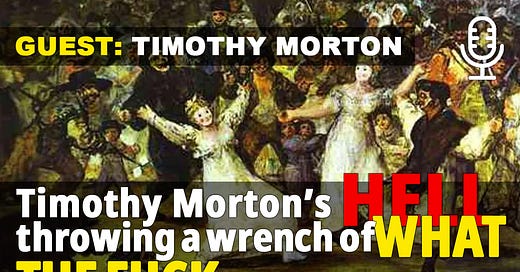
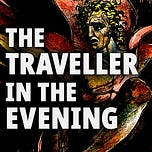




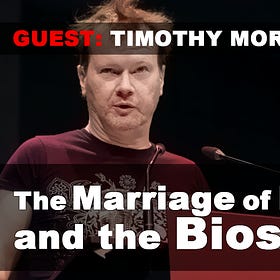
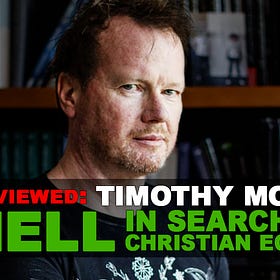
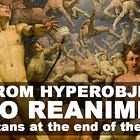

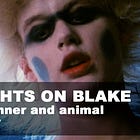
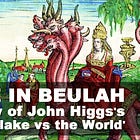
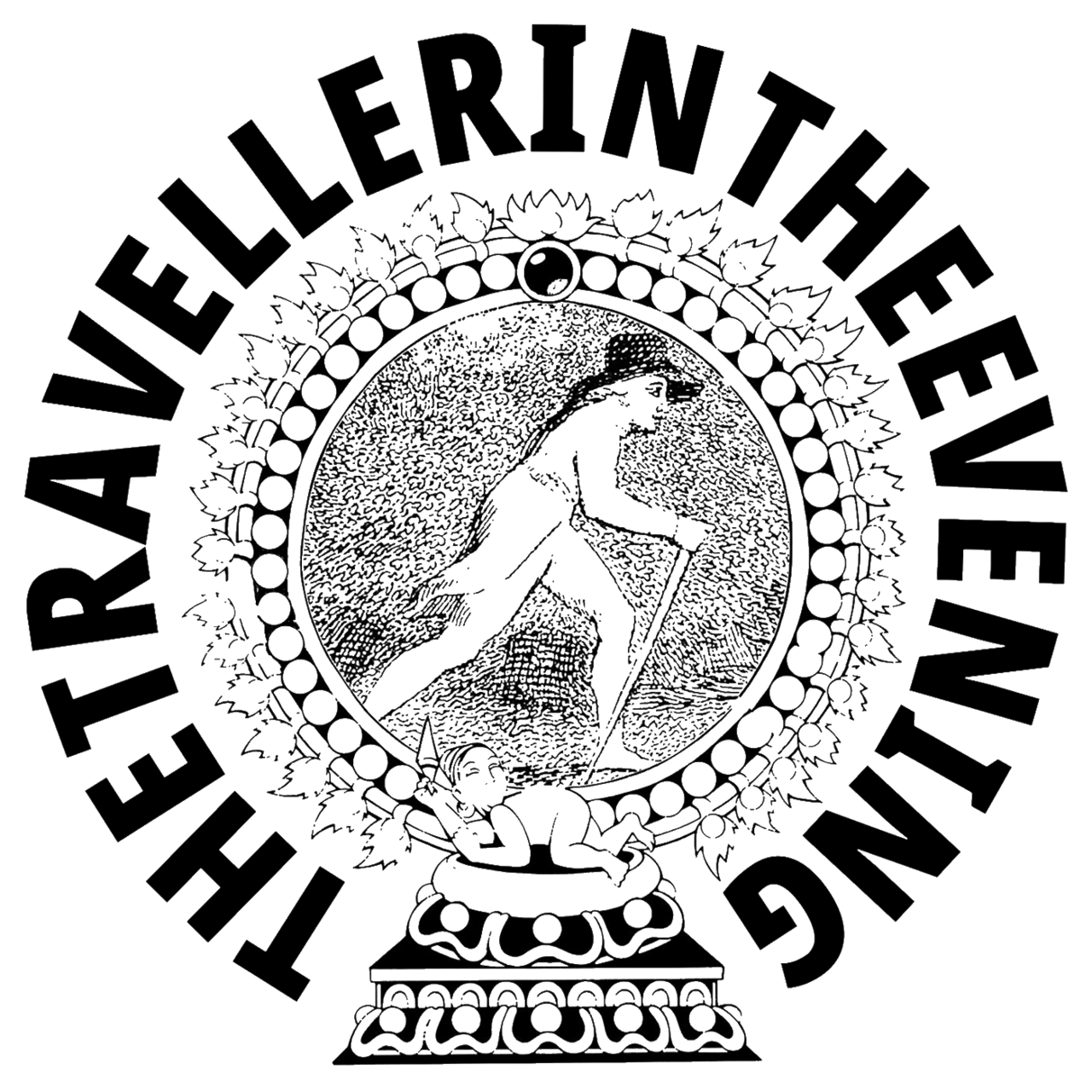


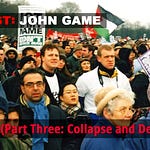
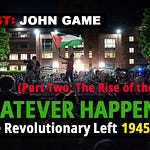
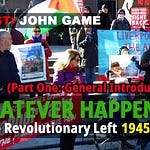
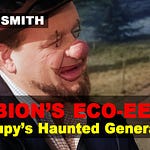
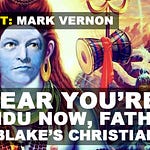
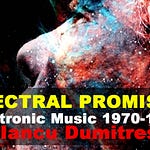
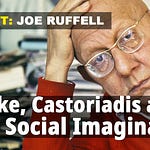
Share this post